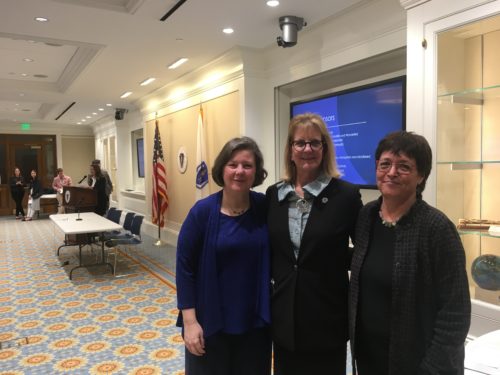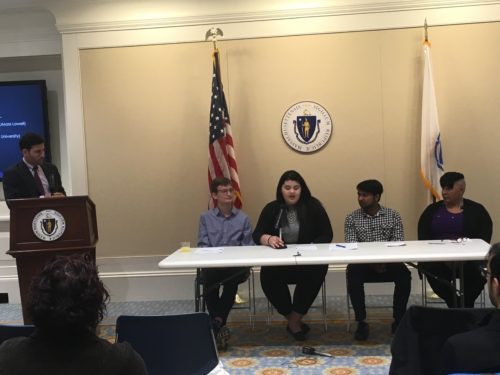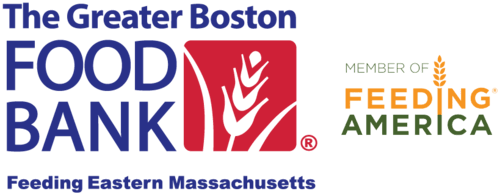Students and Advocates Spotlight College Hunger
“Most of my days I had 75 cents—my lunch and dinner is this bag of Cheetos—and that’s all I’m going to have today.”
– Carla Gonzalez, college student from Lawrence.
Instead of focusing on an upcoming test or writing a term paper, college students across the Commonwealth are going hungry. Nearly half of community college students and a third of public university students in Massachusetts experienced food insecurity, according to a recent study.
On January 30, students and advocates rallied at the Massachusetts State House to raise awareness about this issue and call on lawmakers to act. At the event, organized by the Hunger-Free Campus Coalition, many Massachusetts legislators took notice.
Sens. Jo Comerford, Joan Lovely, and Rep. Mindy Domb thanked students and schools in their districts for bringing attention to this issue.
“I have three public colleges and universities in my district to which I’m accountable.”
– Senator Comerford“Students can’t learn if they’re hungry – and that goes for students of all ages.”
– Representative Domb

“I’m here today for all the students who were told implicitly or explicitly, college is not for you.”
– Carrie Welton, a consultant for The HOPE Center, reviewed their findings and shared her own experience as a mother and a student on public assistance.

Carlos Santiago, Commissioner of the Massachusetts Department of Higher Education, proposed a bold vision for his department: eradicating “zip code determinism” and ensuring equity at higher education institutions. The Department’s “Equity Agenda” prioritizes addressing food insecurity and homelessness at public universities and community colleges.
From California to Minnesota, other states have taken decisive action to support students who struggle to balance the cost of tuition, books, and food. The Hunger-Free Campus Coalition hopes to bring that momentum to Massachusetts by building a grassroots movement here.
Formed in the fall of 2019, the Coalition seeks to address food insecurity among high-need populations enrolled in MA public colleges and universities. Current members include of The Greater Boston Food Bank, The Food Bank of Western Massachusetts, Mass Law Reform Institute (MLRI), Worcester County Food Bank, Central West Justice Center, One Family, Boston Office of Food Access, Bunker Hill Community College, The Open Door of Gloucester, uAspire, United Way of Pioneer Valley and Worcester State University,
Our goal is to ensure equity and incorporate student voices as we work to make Massachusetts college campuses hunger free. Join the Hunger-Free Campus movement here.
